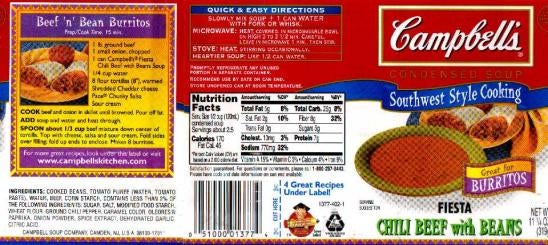Successfully defending against allegations of misleading labeling or advertising claims by consumer attorneys often can require in-depth knowledge of both unpublished "food law" case decisions, as well as the evolving regulatory developments within the Food and Drug Administration (FDA). This interplay was illustrated to us by recent false advertising claims asserted against a food manufacturer that allegedly failed to comply with "implied" nutrient content claims on product labeling. At issue was the use of the word "healthy" (or its alleged equivalents such as "wholesome") in conjunction with a specific nutrient content statement, such as "3g fiber."
According to the consumer attorney, FDA regulations automatically barred use of the term "healthy" if certain levels of total fat and saturated fat were exceeded in a product. These attorneys claimed that consumers were deceived by use of the word "healthy" because a reasonable consumer would assume that "healthy" meant compliance with FDA "nutrient content claim" regulations (promulgated in 1994). On behalf of the manufacturer, we countered that the claims of deception based on non-compliance with the regulations were unreasonable given that the regulations did not reflect current nutritional thinking that distinguishes between types of fat, such as fat from olive oil, nuts, fish and avocados that are perceived to offer benefits not found in some other fat sources.
At the time these claims were made, FDA had proposed revisions to the nutrition labeling requirements in which it had acknowledged that "current science supports a view that the type of fat is more relevant than overall total fat intake in increased risk of chronic diseases." (79 Fed. Reg. 11880-01, at 11881, 2014 WL 794562 (Mar. 3, 2014)). We therefore argued that the alleged deception was "implausible" because reasonable consumers would not buy the product based on long-outdated nutritional thinking. In support, reference was made to a number of recent food law cases. Ebner v. Fresh, Inc., No. 13-56644, 2016 WL 1056088 (9th Cir. Mar. 17, 2016) (claim of deception where lipstick tube accurately disclosed net weight of the lip product but only allowed 75% to advance to the top of the tube not plausible); Gallagher v. Chipotle Mexican Grill, Inc., No. 15-cv-03952-HSG, 2016 WL 454083 (N.D. Cal. Feb. 5, 2016) (claim of deception where restaurant made "non-GMO" claims for meat and dairy products from animals that were not genetically modified (GM) but had consumed GM feed not plausible); Pelayo v. Nestle USA, Inc., 989 F. Supp. 2d 973, 978 (C.D. Cal. 2013) (plaintiff's challenge to "all natural" claim on pasta not plausible as false or misleading because a "reasonable consumer is aware [the pasta products] are not springing fully formed from Ravioli trees and Tortellini bushes").
We also argued that a court likely would stay such matters on "primary jurisdiction" grounds to permit FDA to develop its thinking in this regard. We pointed out that in current revisions to the "Nutrition Facts" panel, FDA was considering the deletion of the requirement that food labels bear a statement of "calories from fat" (which deletion FDA ultimately adopted). Primary jurisdiction is a doctrine sometimes invoked by courts to stay the litigation to await developments from the agency viewed as having the "primary" jurisdiction over the subject matter.
After consideration of our position, the consumer attorneys settled quickly on terms very favorable to the food manufacturer.
Subsequent to resolution of these claims, FDA in fact issued a constituent update regarding "healthy" claims by KIND, a manufacturer of bars containing a substantial amount of fat from nuts. In a petition to FDA, KIND sought permission to use the term "healthy" on its product despite levels of fat higher than those currently permitted by the nutrient content claim regulations. FDA confirmed its current thinking and permitted use if the term referred to a "corporate culture," rather than being used as an implied nutrient content claim, in conjunction with other nutrient content claims.
The foregoing illustrates that food litigation and regulation are often intertwined, and that a strong regulatory compliance knowledge base can be instrumental in driving successful defenses against false advertising claims.



 i
i

